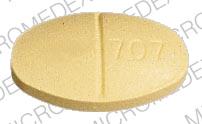Tonocard Drug Interactions
Currently displaying a list of 59 drugs known to interact with Tonocard (tocainide).
- 10 major drug interactions
- 45 moderate drug interactions
- 4 minor drug interactions
Medications known to interact with Tonocard
Note: Showing generic names only.
A
B
C
- carteolol
- carteolol ophthalmic
- carvedilol
- chloramphenicol
- cimetidine
- cladribine
- clozapine
- colesevelam
D
E
G
L
- labetalol
- lamotrigine
- landiolol
- lanreotide
- levobetaxolol ophthalmic
- levobunolol ophthalmic
- levobupivacaine
- lidocaine
- lidocaine topical
M
N
O
P
R
S
T
U
V
Tonocard disease interactions
There are 2 disease interactions with Tonocard (tocainide) which include:
More about Tonocard (tocainide)
- Tonocard consumer information
- Check interactions
- Compare alternatives
- Drug images
- Side effects
- Dosage information
- During pregnancy
- Drug class: group I antiarrhythmics
- Breastfeeding
Related treatment guides
Drug Interaction Classification
| Highly clinically significant. Avoid combinations; the risk of the interaction outweighs the benefit. | |
| Moderately clinically significant. Usually avoid combinations; use it only under special circumstances. | |
| Minimally clinically significant. Minimize risk; assess risk and consider an alternative drug, take steps to circumvent the interaction risk and/or institute a monitoring plan. | |
| No interaction information available. |
See also:
Further information
Always consult your healthcare provider to ensure the information displayed on this page applies to your personal circumstances.


